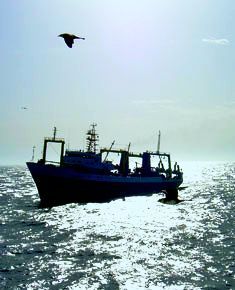The central bank governor is warning that the euro is not the cure for all Poland's ills
Published:
19 January 2005 y., Wednesday
The central bank governor Leszek Balcerowicz is warning that the euro is not the cure for all Poland's ills.
Leszek Balcerowicz believes the government should focus on reforms to yield long-term economic growth, rather than rushing to join the single currency.
"I never said that Poland should enter [the eurozone] at any cost. I said the best strategy is to fulfill conditions for euro entry in a rapid and sustained way," said Balcerowicz, while attending a meeting of central bank governors last week. "The process of EU enlargement was conducive to reforms. The idea of euro entry should be a similar incentive."
Balcerowicz has frequently said that eurozone entry is a political, rather than an economic issue, and that taxes and spending are currently too high for single-currency membership. He also said that tougher reforms were necessary to free Poland from the shackles of long-term high unemployment. In the 1990s, his economic treatments helped Poland recover from the collapse of communism.
"It will pay for Poland to undergo fiscal consolidation," he said. "Unemployment in Poland is not due to over-excessive market-oriented reforms. All of the reasons are structural. There has been some labor market liberalization but I think we need much more decisive action."
Despite his comments, the Civic Platform (PO) party, which is expected to win the next general election, says eurozone entry by 2009 will be a key objective for the party. "Our government will have the strategic goal of adopting the euro by 2008 or 2009. We will do everything to make sure it happens," said Zbigniew Chlebowski, deputy head of the Platform's parliamentary group.
Chlebowski also hinted at the future government's economic policy plans, saying major reform initiatives-such as its flat-tax proposals-would be launched at the start of 2007, not in 2006 as earlier signaled. He also said that limiting the budget deficit in 2006 would be difficult because of the outgoing government's spending promises but that fiscal policy would tighten from 2007.
Šaltinis:
wbj.pl
Copying, publishing, announcing any information from the News.lt portal without written permission of News.lt editorial office is prohibited.
The most popular articles
 The financial crisis is having a serious impact on low-income countries.
more »
The financial crisis is having a serious impact on low-income countries.
more »
 The agreement was welcomed by the EU, which has led efforts to crack down on loose banking practices that caused the financial crisis.
more »
The agreement was welcomed by the EU, which has led efforts to crack down on loose banking practices that caused the financial crisis.
more »
 On 31 March this year, the boards of AB Bank SNORAS and AB “Invalda” approved of the purchase and sales transaction of AB “Invalda” financial group's companies.
more »
On 31 March this year, the boards of AB Bank SNORAS and AB “Invalda” approved of the purchase and sales transaction of AB “Invalda” financial group's companies.
more »
 MEPs will vote on Thursday 2 April on a first reading agreement on the voluntary EU Ecolabel (“EU flower”) system for environment-friendly products to become less costly and bureaucratic to use.
more »
MEPs will vote on Thursday 2 April on a first reading agreement on the voluntary EU Ecolabel (“EU flower”) system for environment-friendly products to become less costly and bureaucratic to use.
more »
 The fourth quarter of 2008 was not so good for the banking industry, and the financial conditions of commercial banks and savings and loans is expected to further deteriorate for the rest of 2009 and the first part of 2010, according to LACE Financial Corp.
more »
The fourth quarter of 2008 was not so good for the banking industry, and the financial conditions of commercial banks and savings and loans is expected to further deteriorate for the rest of 2009 and the first part of 2010, according to LACE Financial Corp.
more »
 MEPs recently gave the green light to a new trade deal between Europe and Caribbean countries.
more »
MEPs recently gave the green light to a new trade deal between Europe and Caribbean countries.
more »
 New VoIP Features Boost Flexibility, Mobility, Cost Savings for Organizations Seeking to Untether Workers.
more »
New VoIP Features Boost Flexibility, Mobility, Cost Savings for Organizations Seeking to Untether Workers.
more »
 According to the revised data, in IV quarter 2008, GDP at current prices made LTL 28578.8 million and against IV quarter 2007 decreased by 2.2 per cent.
more »
According to the revised data, in IV quarter 2008, GDP at current prices made LTL 28578.8 million and against IV quarter 2007 decreased by 2.2 per cent.
more »
 The EP Fisheries Committee rewrote the rules on recreational fishing in its consultative report, adopted Tuesday, on a proposed “control regulation” to ensure compliance with common fisheries policy (CFP) rules.
more »
The EP Fisheries Committee rewrote the rules on recreational fishing in its consultative report, adopted Tuesday, on a proposed “control regulation” to ensure compliance with common fisheries policy (CFP) rules.
more »
 In a measure of the Union’s strong growth prior to the financial crisis, the demand for EU trademark rights has shot up in recent years, creating an unexpected budget surplus.
more »
In a measure of the Union’s strong growth prior to the financial crisis, the demand for EU trademark rights has shot up in recent years, creating an unexpected budget surplus.
more »